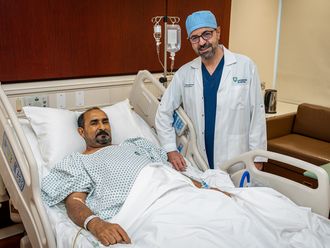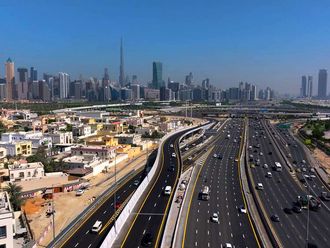Dubai: Dubai on Monday announced the launch of a new diabetes care centre that will include a children's section and will double the number of adults being treated with the deadly lifestyle disease.
Dr Hamed Farooqi, director of the Dubai Diabetes Centre said there are a "sizeable" number of children with Type 1 diabetes and that they need more involved care. "They have to take their insulin on time, they have eat properly..all that takes time and effort," he said.
The new expanded centre will be located on the December 2 Street (previously known as Al Diyafa Street) within the premises of the Shaikh Hamdan Medical Awards building. The present centre is located within Al Wasl Hospital.
The centre was launched by Shaikh Hamdan Bin Rashid Al Maktoum, Deputy Ruler of Dubai, Minister of Finance and President of the Dubai health Authority (DHA).
He said the new centre will offer specialised care to children, while launching it at the DHA stand at the Dubai Diabetes Congress and Exhibition.
While Type1 diabetes is due to genetic factors, a majority of adults (both Emiratis and expatriates) suffer from Type 2 diabetes due to their bad lifestyle choices.
Dr Faqrooqi said one out of five people who have diabetes do not know that their eyes are seriously damaged because of the affliction.
He said a Congress like this makes people aware of the dangers of the life-long disease. "Most important is that we get to know what international experts are doing elsewhere and what are the best practises in the care of diabetics."
Figures show that one of five people, or 800,000 residents of the UAE suffer from diabetes and there is also a huge number which does not know that they have the disease, doctors said.
The Dubai Diabetes Congress has attracted a record 14,600 participants and is the first to be held in the Middle East.
The Congress aims to spur governments in the region to take action in stemming the disease which is known as the "silent killer" as there is no early indicationn of diabetes.
President Jean Claude Mbyanya of the International Diabetes Federation (IDF) warned earlier that the disease has no barriers. "It affects everyone, rich or poor," he said.












